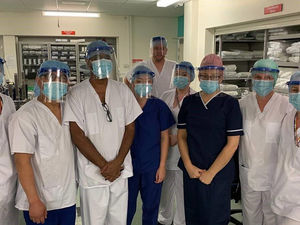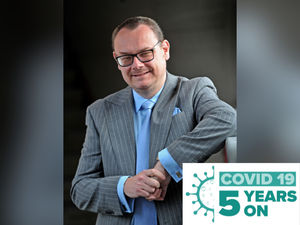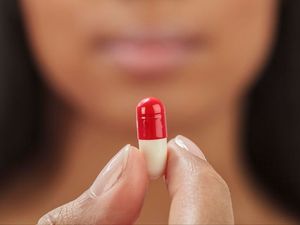Wolverhampton Civic Centre transformed into mass Covid testing centre ready to open on Monday
The first mass Covid testing site in the region is set to open to the public on Monday – with bosses hailing it as crucial to reducing the spread of the virus.
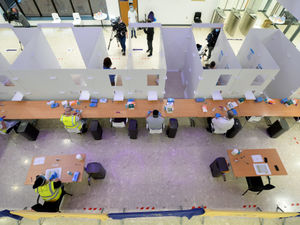
The site at Wolverhampton Civic Centre offers lateral flow tests to people without symptoms, providing results in less than an hour.
Health chiefs say they have the capacity to test up to 27,000 people each week. They hope to test as many of the city's population of around 270,000 as possible, with people invited to get tested on multiple occasions.
The site is also open to people from other areas.
WATCH: Council leader Ian Brookfield on mass testing in Wolverhampton
Up to six other sites around Wolverhampton are expected to be announced next week. It follows a community-led rapid testing pilot at the Sedgley Street Gurdwara, which is due to end on Monday.
The Civic Centre site opened to a small number of council workers this afternoon and will open to the public at 8am on Monday.
Mass testing was first trialled in Liverpool, where health chiefs credited the programme with sparking a steep decline in cases.
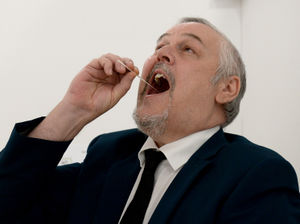
Councillor Ian Brookfield, the leader of Wolverhampton Council, said mass testing could speed up the process of the city moving out of Tier 3 restrictions.
He said: "We've seen the impact that mass testing has had elsewhere - and we want to emulate that success here in Wolverhampton.
"Testing people without symptoms is really crucial because because it means we can identify cases of the virus among people who don't realise they've got it, and as a result might be inadvertently passing it on to others.
"They can then be asked to self-isolate, which will help to break the chain of transmission and reduce the spread of Covid.
"If we can get the infection rate down, we will not only cut the number of people catching Covid, but also increase the chances of Wolverhampton being able to move out of the Tier 3 restrictions we're currently subject to more quickly, which would be a win-win for everyone.
"I'd urge you all to play your part by coming down to the Civic Centre and getting a test."
More Covid-19 coverage:
Mr Brookfield said organising the programme had been "a huge undertaking", involving more than 100 council workers and volunteers.
Wolverhampton’s director of public health, John Denley, warned that coronavirus remained "a real and present danger" and said the roll-out of mass testing was a key step on the city's road to recovery.
"We want people to build it into their routine, which will make us able to tackle this situation as a city," he said.
"We have the main hub in the Civic Centre, but we are working very quickly to get other sites up and running in the community.
"People have got to be able to access it, but they also have to be comfortable with the idea of routinely testing themselves.
"I would urge everyone to play their part, have a test and help us push infection rates right down so we can get life back to normal as quickly as possible.
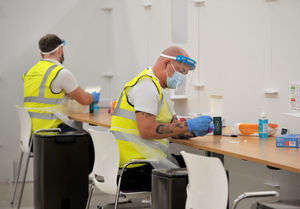
Mr Denley said the city already tested between 7,000 and 8,000 people a week at its existing sites.
The pilot programme at the Sedgley Street Gurdwara has been hailed as a major success by health chiefs in the city.
It has been extended until Monday and saw more than 120 asymptomatic people test positive in 10 days.
Mr Denley described it as a testing "blueprint" and that lessons learned from it had helped to get mass testing off the ground in the city.
Testing at the Civic Centre starts on Monday and is open from 8am-7pm on weekdays, and 10am-6pm on weekends.
Infection rates in Wolverhampton have fallen dramatically over the past two weeks.
In the seven days up to December 1, the rate was 249.48 cases per 100,000 people, having peaked at 375.2 cases per 100,000 on November 17.



